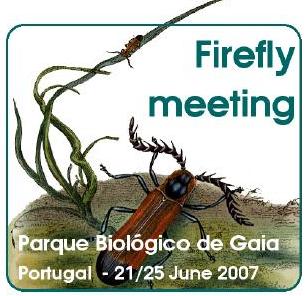 Fireflies attract scientists to Portugal
Fireflies attract scientists to Portugal
For more than a decade now, Biological Park of Gaia (Parque Biológico de Gaia)
opens its doors during the nights of June for the observation of fireflies and
glow-worms.
During these nocturnal guided walks, children and adults watch these insects,
and every year a lot of people wait for the days when their activity can easily
be observed. This initiative raised the curiosity of the Belgian Raphael De
Cock, who wanted to participate, and after a while he managed to get a lot of
scientists to travel to Portugal.
So this year the Biological Park, together with the Belgian Research Institute
for Nature and Forest, organised an international meeting, bringing together
scientists from a multitude of nationalities; from Thailand, Japan and Taiwan to
the United States of America, Switzerland, Germany, Belgium, Italy, the United
Kingdom, and, of course, Portugal.
During five days the programme consisted of talks, field trips, workshops and
poster sessions. Most often, the need for scientific studies and the importance
of the ecological balance was highlighted.
For example, one discussed the timely subject of effects of light pollution on
fireflies. Artificial light pollution makes the night sky less interesting as
less stars are visible; it therefore hampers astronomical research and night
watching of fauna and flora, but also disturbs wildlife. Specifically for
fireflies, light pollution makes it difficult to notice the light signals they
use for mate recognition.
Within the Biological Park one can encounter lots of fireflies and glow-worms,
and the researchers already managed to record four different species.
As adults, fireflies can be seen from April till August, and those of you who
held them already in the hands know that their lights don’t burn and that they
are actually among the coldest lights on earth. The emitted light of the adult
insects are signals for mate recognition, whereas the ones of the larval stages
are anti-predatory devices.
This event launched a new survey for Portugal.
Source: Parques e vida selvagem N° 21 "Ana Vilar"